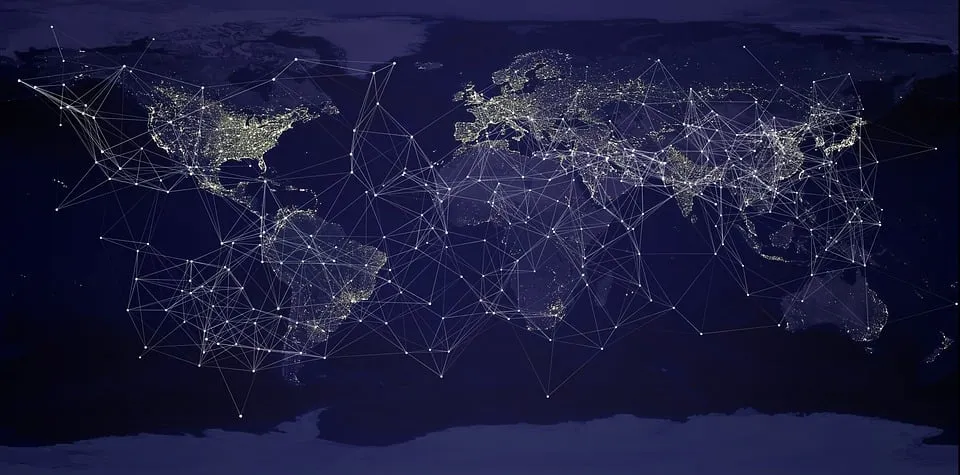
Among the many Covid restrictions Singapore has passed to date, the unofficial vaccine mandate is the most insidious. In a single stroke, tens of thousands of workers are forced to choose between the jab and the job—as well as students who are about to enter the workforce.
The Ministry of Manpower claims that termination for refusing the vaccine is a 'last resort'. In the past two weeks, I have read stories of employers threatening to fire unvaccinated employees, or already firing them. They are treating termination not as a last resort, but as a first. Remember that this policy is only supposed to kick in on 1st January, but people are already losing their jobs. The government has handed off vaccine coercion to employers, and some employers are already going above and beyond the call of duty.
Not only that, by setting the policy for 1st January, the Ministry of Manpower is signaling that it expects Covid restrictions to continue well into 2022. Arranging for daily ART tests, negotiating with employees for redeployment to work from home, and other such bureaucratic requirements is tedious and costly. Simply not hiring unvaccinated people is cheap and easy. Such a move would require would-be employees to disclose their vaccination status, which is a violation of medical ethics, but when everybody is doing it, it ceases to stop being seen as a crime.
Elsewhere in the world, in the face of vaccine mandates, people get organized. Unions organize walkouts and strikes. Activists organize massive protests and sit-ins. People, vaccinated and unvaccinated, take to the streets in solidarity, demonstrating that they have had enough with medical tyranny.
In Singapore, there is only silence.
Silence from the opposition who promised to represent the people. Silence from the unions who promised to represent the workers. Silence from the media, the employers, the schools, the influencers, every single societal institution.
Silence.
For decades, Singapore has been conditioned towards compliance and conformity. In exchange for surrendering critical rights, including the right to strike, the government promised to look after the needs of the people. Speaking out against the authority is seen as dangerous, a message constantly reinforced by lawsuits, regulations, Correction Directives and arrests. Otherwise, it is seen as futile. Or worse, treason.
Singapore is not the West, the government says, so Singapore needs to be run by Asian values. We are looking at the fruits now. The people have given up civil liberties in exchange for security and prosperity, and just like that tens of thousands of people woke up to discover that they have neither.
They cannot count on the vaccinated majority to save them. To the majority, they are the troublemakers, the superspreaders, the people holding society back, the ones who refuse to conform to the wishes of society—by which they mean the will of the state. This is the only opinion allowed to be published in the mainstream media, and so it is the only opinion allowed to be seen as true.
Singapore's Covid measures have failed. It is one thing to mandate an effective vaccine. It is quite another to mandate a vaccine that does not stop the spread of disease, that does not confer long-lasting protection, that is not as effective as natural immunity, and might actually grant negative protection over time. Indeed, in spite of Singapore's increased Covid restrictions last month, there is still no sign of transmissions slowing down. In response to this, the government continues to double down. We can fully expect it to double down even more.
The state seeks to shut out the unvaccinated from society. We must, by our own hands, save ourselves. This leaves us with only one option:
To create a parallel economy.
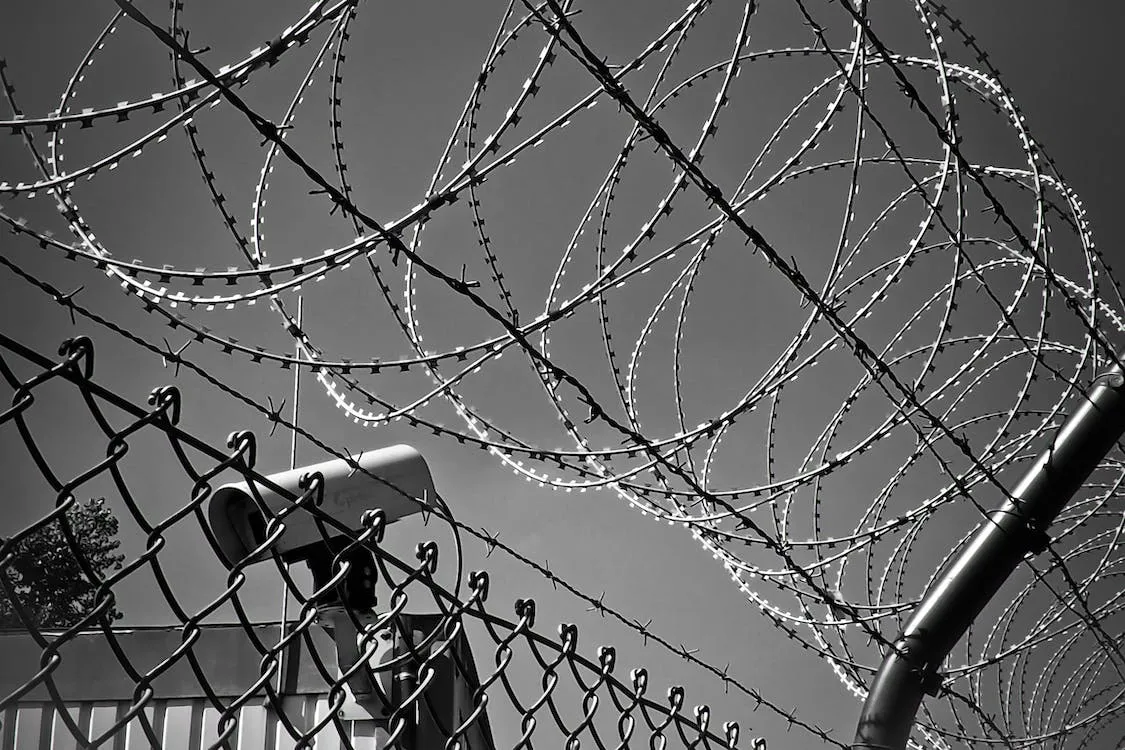
The Challenges
We must assume the worst case scenario and plan accordingly. Therefore, I shall take reference from Lithuania, the most restrictive Covid society that I know of, and plan accordingly. This is what a maximum restriction society may look like. These are the conditions under which a parallel economy may need to operate.
**Formalisation of Covid Pass. **Proof of vaccination in Singapore is already used the same way as a Covid pass overseas. It may or may not be formalised or written into law, but as people attempt to game the system, expect Parliament to pass new laws that turn proof of vaccination into a de facto Covid pass—or for the government to rule by bureaucratic fiat by issuing new 'advisories'.
Covid Pass required for all indoor spaces. Malls, libraries, shops, banks, gyms, supermarkets, barber shops, community centres, post offices, convenience stores, every indoor space will lock out everyone who cannot produce a Covid pass. No unvaccinated person, barring those with exemptions, will be allowed to access any critical service hosted in an indoors space of any kind. Likewise, no unvaccinated person will be allowed to attend any event held indoors.
Covid Pass required for all crowded outdoor spaces and events. Hawker centres and open-air eateries will reject the unvaccinated. Outdoor events will be ring-fenced, with security staff ready to check your Covid pass. The government will hire an army of 'social distancing ambassadors' to enforce these policies, and grant them pseudo-police powers to resolve inevitable conflicts. SDAs and police will patrol open spaces to break up crowds larger than an arbitrary limit.
Covid Pass required for public transport. Staff will be deployed at train stations the country to check for vaccination status prior to boarding. Bus services will either require drivers to double as Covid pass checkers, or hire inspectors to check passengers prior to boarding. This measure was suspended in Lithuania due to the chaos it introduced into the system, but we cannot count on the government caring about such minor things as efficiency and public utility.
**Segregation of medical services. **The Ministry of Health is currently considering whether to compel the unvaccinated to pay for their own medical treatments in case they contract Covid. Expect this to become policy in the coming days. I have read of clinics and doctors that have already passed unofficial and unwritten policies forbidding the unvaccinated from seeking treatment at their establishments. In a maximum restriction society, such a policy will be enforced nationwide. A slightly-less-intolerant state may allow the unvaccinated to receive emergency treatment, but do not count on it. Further, expect the unvaccinated to be pressured into taking the shot while receiving treatment. Not only that, expect unvaccinated to be barred from visiting their loved ones, or be barred from receiving visitors.
**Segregation of public and private services. **Government agencies and corporate offices will segregate the vaccinated and the unvaccinated. The vaccinated get priority of service, the unvaccinated will be pushed to the back of the line, and will be served only after every vaccinated person has been served. I have read unconfirmed reports that this is already happening; we can expect this to become widespread practice.
**Segregation of students. **Students in Singapore are already required to segregate themselves by vaccination status during mealtimes. In a maximum restriction society, expect this to get worse. Segregated classes and/or seating areas, wearing visible symbols to warn all around them that they are unvaccinated, taking daily ART tests at their own expense. We may expect a return to home based learning, but only for the unvaccinated. The goal is to impose peer and teacher pressure on students and to force them to jump through more restrictions, above and beyond the pressure they are already facing.
Segregation of employment. Vaccination will become a de facto job requirement. The unvaccinated will not be hired for all but the most demeaning and degrading of jobs that require physical presence in the workplace. Unvaccinated employees allowed to keep their jobs may be passed over in favour of vaccinated ones for promotion, bonuses and raises, with their employers claiming that the unvaccinated employees aren't able to contribute as much to the company. More insane employers will insist on proof of vaccination even for remote work positions, or jobs that are completely home-based.
No indoor toilets for unvaccinated. Be it at malls or bus interchanges, community centres or even police stations, pedestrians will not be allowed to use indoor toilets without a Covid pass. Trips have to be planned around your ability to hold it in until you rush home—and that of your children and relatives.
Social stigmatisation. Expect daily propaganda against the unvaccinated to reach a fever pitch. This includes: opinion pieces by 'experts' mandating vaccination, the government disclosing the death rates of unvaccinated only, the media highlighting the plight of those who do not take the vaccine, influencers and celebrities bashing the unvaccinated, discounts for the vaccinated and inconvenience for the unvaccinated. Also expect the unvaccinated to be required to wear a visible sign that they are unvaccinated everywhere they go.
Curfews and quasi-lockdowns. Case counts tend to spike after weekends. Expect the unvaccinated to be placed under a de facto lockdown on weekends, and possibly after dark. Expect police patrols to demand your Covid pass when you step out of the home, and for guards at malls and shopping areas to call the police if they catch you without a Covid pass.
No overseas travel for the unvaccinated. You won't even be allowed to leave a society that doesn't want you.

The Red Line
The Covid vaccines are still experimental. Clinical trials for the Pfizer vaccine are slated to end on 2 May 2023, while the Moderna vaccine completed trials on 27 October 2022. Looking at how the Food and Drug Administration continues to approve the use of the most dangerous vaccines in the history of mankind, we can expect the vaccines to be green-lit around the world after the end of clinical trials regardless of what the data actually says.
In the absolute worst-case scenario, the Singapore will pass a vaccine mandate: every citizen will be required to take the vaccine, every single person who refuses to take the shot by a given date will be treated as a criminal, every vaccinated person who will not take booster shots every 3 to 6 months will be deemed as not fully vaccinated.
Should this occur, the vaccine will be treated not as a medical treatment, but as a loyalty test. He who refuses to take the shot is no longer a citizen, but an enemy of the state. In a highly communitarian society society, being seen as an outsider, as a non-conformist, or even being associated with one, is the ultimate sin. Simply discussing the experiences of states that use strategies other than vaccination will be labeled 'misinformation'. Such a mandate will amplify the perceived cost of noncompliance.
Do not hope that the masses will finally wake up. Do not expect them to side with you. They've already lined up for the first and second shots, and they would have been told for months on end that the unvaccinated are the true demons and will be locked out of society. Expect them to take the boosters when demanded, to proudly show off their commitment to public safety, and to harden their stances against the unvaccinated.
The prisons aren't large enough to hold everyone who chooses not to comply. But there is plenty of land in Singapore's outlying and undeveloped islands to build 'quarantine facilities'.
There aren't enough police in Singapore to arrest everyone who chooses not to comply. But the Singapore Armed Forces has over seventy-two thousand active personnel, and have already been deployed to support Covid measures. As we have seen in Australia, expect the police, military and Gurkhas to be deployed to enforce large-scale Covid restrictions.
Do not hope for the government to change course. BioNTech will set up a regional centre and factory in Singapore to produce mRNA vaccines. Recent revelations show that Pfizer took a hardline stance to maximise its profits. With so much money involved, do not count on a policy reversal.
Do not hope for the silent opposition to defend you. Through their silence, they have demonstrated their assent for discrimination. If, not when, they decide to speak out, it will be too late.
Do not hope for the media, the experts, the influencers, or any major personality to speak up for you. Those who are silent now will remain silent tomorrow. Those who do speak out will be charged with spreading misinformation and falsehoods, and be treated as a violator.
Do not assume it will not happen. There is no safeguard against the government descending into full-blown tyranny. There is no opposition willing to stand up to them, no Constitutional checks and balances against such flagrant use of power, no media willing to act as a fifth estate, no organization willing to do anything except applaud.
This is the worst case scenario. It may not happen, but you must plan as if it were inevitable. Others may call it inconceivable or unthinkable, but remember: over the past decades, the government has removed all safeguards against abuse of power and has steadily increased its power. The state has never hesitated in cracking down on its opponents. There is no reason to think it will not happen.
You must set your red lines now. Before that day comes, you must decide what will compel you to act, and how you will act should that day come.
The point of this exercise is not to scare you. It is to get you to think about the worst that could potentially happen to you, then think about you can do to prepare for it before it happens. I won't pretend to tell you what you must do. It depends entirely on your context. I will ask you instead to imagine yourself living in such a society, in which the unvaccinated are banished from society, or treated as enemies of your state.
How will that affect you and your loved ones? How will you obtain essentials? How will you continue to provide for you and your family? What resources do you need, and how quickly can you obtain them? Will you stay in Singapore, or will you leave?
Think hard about these questions now, while you still have time.
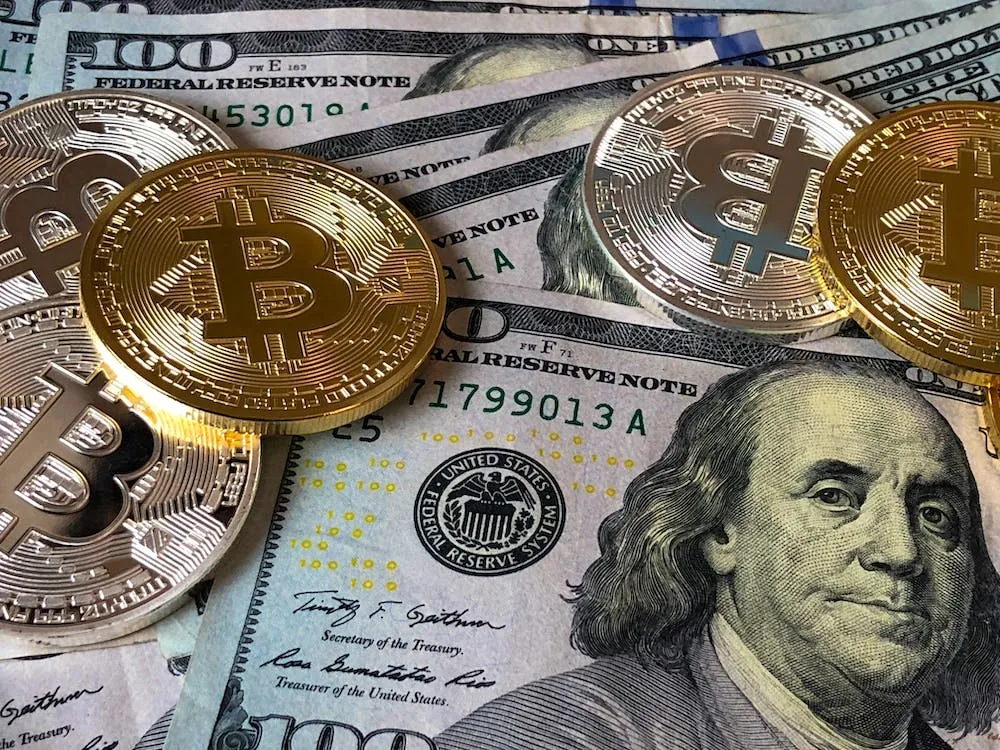
The Parallel Economy
Most of society has shut out the unvaccinated. We must plan as if Covid measures will continue to tighten indefinitely. Any relaxation of policies should be deemed as temporary until and unless Covid finally blows over. We cannot hope for the mercy of society, the spine of the opposition, or the whims of the government. Therefore, we must create a parallel economy that can function without a need for Covid passes, and can continue to function even if the government crosses the red lines described above. What does such an economy look like? Here are some ground rules:
Eliminate dependencies on government services. As far as possible, stay away from the government. While some measure of interaction may be unavoidable, the lower the interaction, the better. This reduces your exposure to official (and official non-official) vaccine discrimination.
Focus on health. As the old saying goes, health is wealth. Do your best to stay away from doctors and hospitals. Get plenty of sunlight, vitamins, zinc, and other micronutrients. Take charge of your diet and prepare healthy meals. Exercise regularly. Identify chronic health issues and address them before they get worse. Lose weight if you're overweight. In my case, I took the opportunity to practice internal martial arts and qigong daily, and saw my health improve noticeably ever since the pandemic began. If you do have to visit a doctor, be certain to choose only those that will not discriminate against anyone.
Build multiple sources of income. If you have a day job, expect the job to go away unless you have an understanding employer. Even then, expect the government to harass your employer if he cannot strictly follow the letter of the law. You must create sources of income that the government or an unreasonable boss cannot take away from you.
Build a talent stack. A talent stack is a combination of complementary skills only you have. Take a look at your strengths and pick the best two or three that work well together. This could be special expertise, experience, qualifications, and so on. Practice these skills until you are in the top 25% in the world at these skills. Then stack your other, lesser, skills under them. You may not be good at these lesser skills, but when put together with your strengths, you have a unique combination of talents you can offer to the world.
Become antifragile. Antifragile people and organisations grow in response to trauma. Where fragile people back down or reduce themselves in the face of adversity, antifragile people seek opportunities to grow and to be of service. With every traumatic incident, they identify weaknesses and plug them, or even turn them into strengths.
Support local. Identify local stores around you where you can source for groceries and other supplies. These stores should be accessible by public transport, or on foot if needs must. Alternatively, reach out to people who are willing to help you make grocery runs or pick up other essential supplies.
Act global. Through the Internet, you don't need to be tied to Singapore. You don't need to work in an office or a physical workplace either. You don't have to be limited to the Singapore job market, or to other income opportunities available only in Singapore. Expand your horizons and see what else is waiting for you.
Network. We are all in this together. Now is the time to build robust networks of contacts and help each other out. In times like this, those who go alone will suffer, while those with a tribe will thrive.
With these principles to guide us, let's look at ideas on how to build a parallel economy.

Solve Problems
This is the foundation of any economy. People have problems that they cannot solve by themselves. Solve those problems for them and they will give you money. The bigger the problem you solve, the more value you create, and the more value you receive in turn. If you can't do that, you can solve smaller problems for people who are trying to solve much bigger problems (i.e. work for someone with a solid business plan). The key is identifying which problems that your talent stack can solve, and how to reach out to people who can benefit from what you have to offer.
Northeast Singapore is most affected by the current spate of Covid measures. With services concentrated in malls, obtaining essential goods and services becomes extremely difficult. Should this situation continue, there may be demand for freelancers who can help with daily chores, either by entering malls directly, or traveling to distant and inconvenient standalone shops. Think delivery drivers, personal shoppers, and chaperones.
Demand for essential service providers will also increase. Ordinary people can't access essential services, and rich people don't want to expose themselves to the virus. Think of services that allow for house calls and/or online consultations. Personal cook, hairdresser, pet groomer, insurance agent, babysitter, tutor, and the like.
Technology is and remains a growth industry. Software in particular is a high-margin field. A single person can code a piece of software in his room that can yield a multimillion-dollar payoff. Indie games like Skautfold, World of Horror, Cuphead and Hollow Knight were created by a tiny team of developers (in Skautfold's case, just one man), and became hugely successful. Live streaming is extremely popular now, because it creates a sense of community amidst enforced isolation. Software that can reduce or eliminate physical presence in the office will also attract lots of interest, as will software that will foster social interaction.
The Internet is the great equalizer and connector. Remote workers and freelancers have the luxury of working from home as the default, or wherever else they may choose to work. The Internet can connect clients, employers, employees and teams around the world. The Internet helps people download and stream games, books, movies and television series, helping people stave off boredom. Interest in Internet-based technologies will remain sky-high. Should your talent stack allow you to work from home through the Internet, either as an employee or a freelancer, pivot now and see what opportunities are available to you.
These are just some ideas I can offer. Think about what you can do, and how to apply them to the current environment. You may not have the talent, skills or experience to work directly in these fields, but you can help those who do. You could write marketing copy and newsletters, manage social media accounts for a company or a team of influencers, offer accountancy services for Internet-based businesses, and so on.
You may not be inclined towards starting a business or working as a freelancer. If you would prefer to be an employee instead, make yourself invaluable. Figure out your talent stack and generate so much value for your company that they cannot do without you. In doing so, you eliminate the possibility of the employer firing you for trivial reasons.
Whether you are an entrepreneur or employee, freelancer or office worker, you can't just focus solely on making money. Once you have enough to cover your daily expenses, you must think about creating wealth as well.
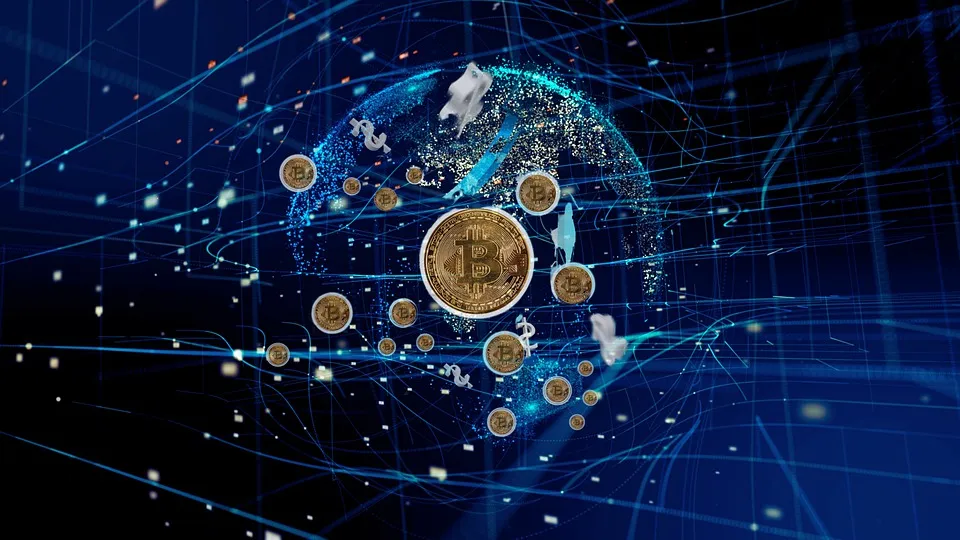
Create Wealth Through Investment and Cryptocurrency
You can't just live month-to-month, especially if you've experienced a sharp reduction of income. Inflation will eat away your real income over time. You have to beat the inflation rate by creating wealth, and the best way to do that is investments. If you have the opportunity to do so, create generational wealth through investments. At the very least, you must protect your wealth from sudden shocks.
Real estate, precious metals, stocks, cryptocurrencies, whichever you want, understand what you're getting into before you dive in. I'm going to focus on cryptocurrencies because I have the most experience in them. Do note that the following is in no way, shape or form financial advice. All I can do is offer ideas for you to explore further.
Cryptocurrency has the potential to transform the world. Many crypto tokens promise to solve difficult real-world problems, from transferring funds across borders to securing logistics chains to connecting various blockchains. This early in the game, there is immense potential to create generational wealth for those willing to jump in. More to the point, decentralized cryptocurrencies are inherently difficult for any one government to control, which means the government cannot play games with your crypto as easily as they can take away your ability to make money through lockdowns and Covid passes.
If you do want to invest, do your research, but act quickly. The crypto market is rapidly approaching a new cycle. Experts are calling for epic all time highs across the board—followed by equally epic dumps as people take profits. Identify three to five crypto assets that catch your fancy, research them inside and out, then commit to them. Though there is great opportunity for wealth, do not be consumed by greed.
Decentralized finance is one of the hot new applications for cryptocurrencies. DeFi platforms allow you to lend and borrow crypto, and earn interest. It offers all the functions of a bank, but without pesky regulations, and much better interest rates. Staking tokens is also another way to generate passive income, again with better rates than locking up your savings in a bank.
Nonfungible tokens are another hot trend in the crypto space. You can create digital artwork and sell them online, without having to go through a broker. You can do the same for music and books as well. You may not want to invest directly in crypto, but if are confident in your digital art skills, this is one way you can make money from it. You could also explore the growing play-to-earn space, which rewards gamers with cryptocurrency tokens that they can sell for fiat.
Decentralized social media could be a viable alternative income stream. By cross-posting my blog on Hive, I earn tips in the form of Hive and Hive Based Dollar cryptocurrencies. Granted, it's not much, but some money is always better than no money. This isn't an easy way to generate income, so be prepared to do your research and put in the work if you decide to go down this path.
I cannot recommend crypto mining in Singapore. The cost of electricity is too high to justify it. Instead, you could consider buying into a mining pool based in a country with cheap electricity.
Singapore aims to be a cryptocurrency hub. Cryptocurrencies like Ethereum and Ziliqa have their headquarters or major development hubs headquartered here. Watch for crypto news out of Singapore, which may have the potential to affect global markets.
Regardless of what path you take to create wealth, it's always better to have money and not need it than the other way around. See what opportunities are emerging and take advantage of them.

Embrace Change
The world is rapidly changing. The world that our parents and grandparents knew is gone. The world that our children will grow up in will be radically different from today. To survive, we must embrace change.
Let the principles of antifragility and adaptability be your guide. Don't try to hang on to your current way of life when the world crumbles around you. When you face difficulty and resistance, yield into them, shaping yourself to meet and overcome them.
For example, if your boss fires you for refusing to be vaccinated, it's not the end of the world. You still have your skills, experience and talent stack. There are plenty of people out there who need them. You could find another employer, become a teacher and pass on your knowledge, or go into another industry altogether.
Suppose you have an entrepreneurial bent instead. Look at the world and see how you can be of use to others. Adversity presents problems. Problems present opportunities for those with the skills to solve them. Covid restrictions are no different. I've highlighted a number of them above. You could work with that, or brainstorm your own ideas.
Alternatively, you could learn new skills. The key is to learn skills that complement your existing talent stack. If you pick up something unrelated, it may be a fun pastime, but it won't necessarily solve the problem of making money. But if you learn a skill that works well with your existing skills, you've deepened your talent stack and granted yourself an even larger competitive advantage. This is the missing ingredient from the government's never-ending call to upskill and retrain workers: learning skills that grant you a unique competitive advantage.
With rapid change comes many fleeting opportunities. You don't have to seize all of them, just the one that you can take full advantage of with your talent stack. Even if you don't have the skills to take advantage of the opportunities you do so, you can help those with the means to pursue those opportunities. Instead of asking yourself how you can make money, ask how you can create value for the world and what problems you can solve. By solving these problems, money comes naturally.

Find a Tribe
The government has divided the nation. The establishment has turned against you. All of society is designed to atomize you, to turn you into an isolated individual, cut off from everyone around you.
You cannot let this happen to you.
Create networks of like-minded people. Twitter, Telegram, MeWe and Gab can be especially powerful at helping you find your tribe. Understand what everyone in the group can bring to the table, and see how you can help each other. This includes hiring unvaccinated workers, recommending job opportunities, opening new businesses, connecting to influencers and key people, and more.
The SG Connect Concerned Parents Group on Telegram is currently focused on identifying essential shops and services located outside malls. Healing the Divide is organizing legal efforts to push back against vaccine discrimination. Other Telegram groups are focused on crunching numbers and documenting cases of discrimination. We have here the basis for mutual aid networks.
Do not treat the vaccinated as the enemy. There are many vaccinated people out there who are sympathetic towards the unvaccinated. They might be willing to help if you reach out to them. Society is divided enough; we do not need to deepen the divide even further.
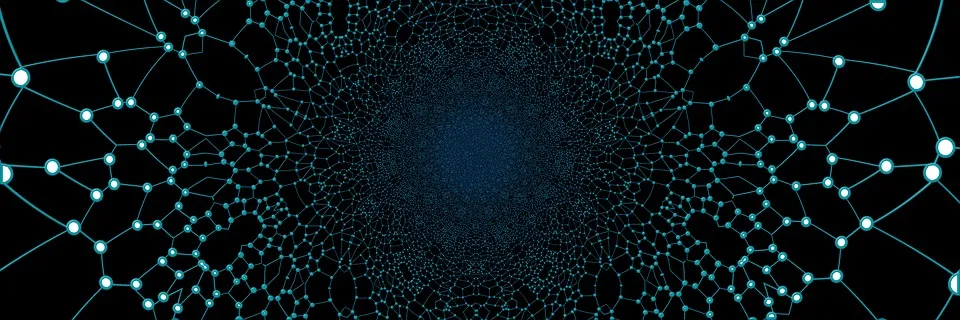
Putting It All Together
Life under a maximum restriction society will be tough. There's no way to sugarcoat it. The government will do everything in its power to coerce you into taking the vaccine. But this does not mean that life will become impossible. You just need to get creative.
Great change brings great opportunities. Which opportunities you chase depends on your personal circumstances and strategy. Do you plan to stay in Singapore no matter what? Then you should think about deepening your connections with locals, laying down roots, and gathering friends and resources to ride out the coming storm. Do you plan to relocate in the event of a formal mandate? Then you must invest aggressively, do your research, and grow your wealth rapidly so that you can bug out should the time come.
Know yourself. Know what you want and what your family wants out of life. Know what you're prepared to live with and what you cannot accept. Know your talent stack and the value you can offer to the world.
Know your context. Know the opportunities available to you, and those that are not. Know the processes you need to complete if you need to make a radical life change. Know what you're in for if you choose to dive into a different industry or to choose higher-risk means of generating income.
Start planning now. Should things change, they will change very quickly. You need to plan now so that you won't waste time panicking and gathering information. Be firm about what you want and pursue it. Be clear about what you will not tolerate, and develop plans to mitigate or eliminate those negative outcomes from your life.
When you plan, have four plans: primary, alternate, contingency, emergency. When, not if, when one plan fails, switch immediately to the next. This is not something you can do overnight, so take the time over the coming days and weeks to hammer these plans home.
Keep an eye on the government, the media, and global trends. Even though Singapore is ranked 160 in the world for press freedom, you can find many clues if you read in between the lines. Watch for signs that the country is approaching your red lines. If or when it does, you must be psychologically prepared to execute your plans.
Above all, do not isolate yourself. You're going to need support, resources, and fresh perspectives. Help others to thrive, and help them help you thrive. Identify people you can trust, then work with them to develop your plans.
The current restrictions will not last forever. At the same time, there is no guarantee that they will not get worse. Build your networks, create a parallel economy, and plan for the worst.
You might just need it.

Want to learn how to write pulp fiction the way I do? Check out Pulp on Pulp here!
